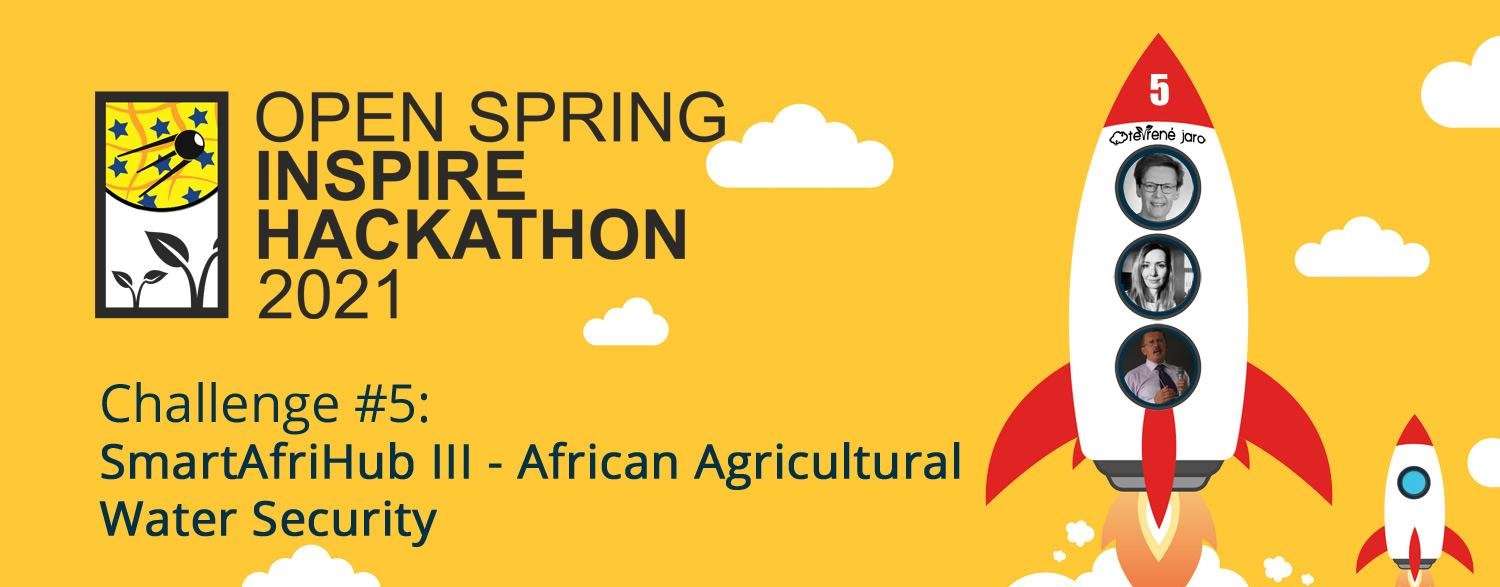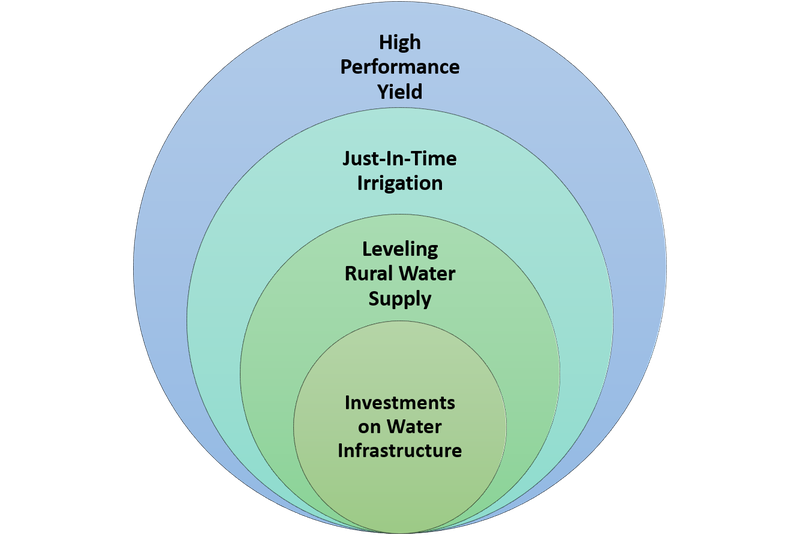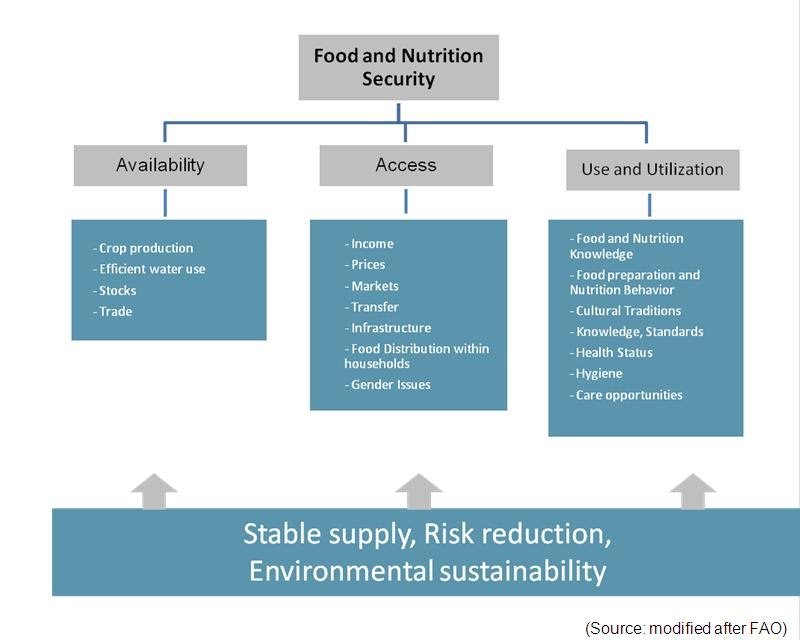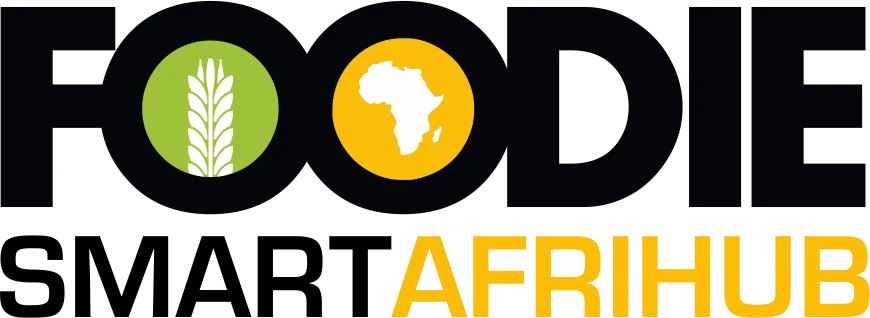| Tuula Loytty

- The infrastructure investor may be e.g. an African national, regional, and local government, abroad investor, or commercial operator.
- Leveling Rural Water Supply means that the water infrastructure scale (e.g. pipe network and groundwater reservoir) is optimal to secure water distribution in rural areas in all circumstances. The fluctuation and deviations of the water supply must be reduced. Leveling Rural Water Supply requires the cooperation and coordination of communities, villages, and municipalities.
- Just-In-Time Irrigation means precision irrigation in volume and timing. JIT Irrigation reduces the waste of water.

Challenge #5: SmartAfriHub III – African Agricultural Water Security
The goal is to continue building the African Community to support SmartFarming in Africa. The challenge combines three concepts:
- Educathon – we support further development of African SmartFarming capacity development by providing rich content at SmartAfriHub,
- Datathon – we support building an Open Repository of Data in Africa and
- Ideathlon – we collect ideas and needs to enhance Food and particularly Agricultural Water Security by enhancing the local Food Nutrition Surveillance System (FNSS).
We embrace transversally, over all three concepts, the COVID-19 era experiences, observations, best practices, and innovations. The ultimate goal is to build local food and especially Agricultural Water Security that is resilient in any circumstances. In addition, the goal is also to support the publishing of new scientific papers and the building of potential consortia for research projects.
During the previous two years, Plan4All has organized 3 INSPIRE Hackathons (Nairobi, Kampala and COVID-19) that have reached out to hundreds of African smart agriculture experts, practitioners and stakeholders. As a result of these hackathons, we have an African community of practice that is active in Digital Innovation Hub – SmartAfriHub, Whatsapp, and Facebook. Our goal is to continue and extend these activities by leveraging OpenSpring INSPIRE Hackathon.
- Nairobi INSPIRE Hackathon
- Kampala INSPIRE Hackathon
- COVID-19 INSPIRE Hackathon
- SmartAfriHub
Educathon
Digital Innovation Hub – SmartAfriHub (https://www.smartafrihub.com/cs/about-project) platform connects people to the information and facilitates capacity development. Firstly, leveraging social media type of features like Blog, Forum, Science Shop and connecting users with developers and researchers. And secondly, by sharing demo applications, where farmers, developers and researchers have a chance to cooperate, test different API for new solutions, and also provide common experiments.
Digital Innovation Hub is based on the use of Liferay Portal and as a backend, it uses SQL and non-SQL databases and integrates tools like SensLog, HSlayers NG etc.
Our development goals are to improve SmartAfriHub based on user feedback and suggestions, to integrate new functions on the platform, and to engage new organizations and individuals to share their own content through the platform.
Datathon
In the area of open data we see the following pathways:
- using QGIS Layman to collect data from different countries and regions in Africa
- promote utilization of COPERNICUS data with focus also on Sentinel 1
- collecting a database of best practices by using Best Practices Atlas.
Ideathon
According to FAO, Food Security is “a situation that exists when all people, at all times, have physical, social and economic access to sufficient, safe and nutritious food that meets their dietary needs and food preferences for an active and healthy life”. The four pillars for Food Security are (Figure 1):
- Availability
- Access
- Use and Utilization
- Food System stability

Figure 1: Food Security (ref. https://wocatpedia.net/wiki/Definition_and_Dimensions_of_Food_Security)
The starting point is the first pillar of Food Security, which is “Availability” which refers to the physical existence of food and water.
-
Globally: Irrigated agriculture represents 20 % of the total cultivated land and contributes 40% of the total food produced worldwide. Currently, agriculture accounts for 70 % of all freshwater withdrawals globally. However, there is pressure for water re-allocation which means that 25-40% of agricultural water will be reduced.
-
Africa: Agriculture is the largest user of water in Africa, accounting for about 85-88 % of total water use. Yet only 185 million ha or 6 % of the total area of the region is under cultivation. Of this, some 12 million or 6% of the total cultivated area is under irrigation.
The World Health Organisation (WHO) published in 1984 a description of a Food Nutrition Surveillance System (FNSS). The national and local nutrition surveillance systems focus on identifying trends in key nutrition-related health indicators for their populations, with particular attention on vulnerable groups. The objectives are:
- Monitor population health and nutritional status
- Deliver trustworthy data on the people nutritional status
- Show trends and comparisons
- Raise awareness about nutritional problems
- Provide guidance to health-related intervention programs
The national and local authorities’ responsibility is to establish a pragmatic and reliable surveillance system to alarm and prevent water availability and water quality-related food security problems and risk.
This hackathon challenge is addressed to African communities’ Agricultural Water Security. The aim is to grasp local current situations, identify needs and ideate solutions to improve the water monitoring system.
The water monitoring system encompasses e.g. collecting data, analyzing data, and sharing data with feasible and robust digital tools to enhance decision making, risk management, and development.
***The registration for this challenge opens on 1st April***
Registration link will be available at https://www.plan4all.eu/open-spring-inspire-hackathon-2021/
